Following up on a successful conference in Washington, DC last year, the School of
Public Policy is delighted to welcome our Ronald Reagan Honorary Professor Robby George,
and a diverse group of scholars to our Malibu campus to explore the arguments and
impact of George's book, Making Men Moral. At the core of George's groundbreaking book is the case that public policy and law
cannot be expected to be "neutral" on certain questions of morality. Moreover, believing
that government can assume such a nonpartisan position is a false choice. Published
three decades ago, the book's defense of natural law as a more trustworthy foundation
for public policy and law has influenced generations of policymakers.
George is the McCormick Professor of Jurisprudence and director of the James Madison
Program in American Ideals and Institutions at Princeton University and is a visiting
professor at Harvard Law School. He has served as chair of the US Commission on International
Religious Freedom and as a presidential appointee to the US Commission on Civil Rights.
George has also served on the President's Council on Bioethics and as the US member
of UNESCO's World Commission on the Ethics of Science and Technology. He was a judicial
fellow at the Supreme Court of the United States, where he received the Justice Tom
C. Clark Award.
A Phi Beta Kappa graduate of Swarthmore College, George holds degrees from Harvard
University and Oxford University, in addition to 22 honorary degrees. He is a recipient
of the US Presidential Citizens Medal, the Honorific Medal for the Defense of Human
Rights of the Republic of Poland, and is a member of the Council on Foreign Relations.
The University of Dallas and the American Enterprise Institute host the Robert P.
George Initiative in Faith, Ethics, and Public Policy in Washington, DC. His most
recent book is Conscience and Its Enemies.
Daniel Burns
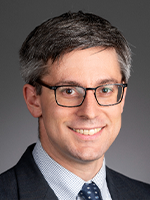 Daniel E. Burns is associate professor of politics at the University of Dallas, where
he has taught since 2012, and where he served in 2020-21 as interim associate dean
of the college of liberal arts. He is spending this academic year as a visiting fellow
at the Civitas Institute of the University of Texas at Austin. He has previously held
a visiting fellowship at the Catholic University of America and remains a fellow of
its Institute for Human Ecology. He received his doctorate in political science from
Boston College and his BA in political science from Williams College.
Daniel E. Burns is associate professor of politics at the University of Dallas, where
he has taught since 2012, and where he served in 2020-21 as interim associate dean
of the college of liberal arts. He is spending this academic year as a visiting fellow
at the Civitas Institute of the University of Texas at Austin. He has previously held
a visiting fellowship at the Catholic University of America and remains a fellow of
its Institute for Human Ecology. He received his doctorate in political science from
Boston College and his BA in political science from Williams College.
His research in political philosophy focuses on the relation between religion and
citizenship, especially in the writings of St. Augustine, Cicero, John Locke, al-Farabi,
Plato, Joseph Ratzinger (Pope Benedict XVI), and the American Founding generation.
His first book manuscript (currently under review) is called Augustine's Philosophy of Law: A Commentary on ON FREE CHOICE, Book One. He is currently completing a book manuscript called "Healthy Secularity": Joseph Ratzinger on Church-State Relations in Liberal Democracies. He is a member of the Neuer Schülerkreis Joseph Ratzinger / Benedikt XVI., a Germany-based
network of scholars committed to carrying on Ratzinger's intellectual legacy.
During a year of academic leave in 2019-2020, he served as deputy director of the
US Congress's Joint Economic Committee, and then as senior policy analyst (contractor)
at the Office for Civil Rights at the US Department of Health and Human Services.
He has served as contributing editor at Public Discourse, and his work has also appeared
in outlets including The New York Times, The Washington Post, National Affairs, National Review, The American Interest, America Magazine, and First Things.
Paul J. Contino
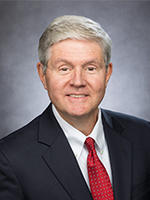 Paul J. Contino is Distinguished Professor in Great Books at Seaver College, Pepperdine
University, where he has been twice granted the Howard A. White Award for Teaching
Excellence. In 2001 he co-edited and introduced Bakhtin and Religion: A Feeling for Faith (Northwestern UP). He has published a number of essays on Fyodor Dostoevsky, as
well as essays on Zhuangzi, Dante Alighieri, and Jane Austen as well as a number of
contemporary Catholic authors such as Andre Dubus, Tobias Wolff, and Alice McDermott.
His book Dostoevsky’s Incarnational Realism: Finding Christ among the Karamazovs (Cascade, 2020) has been published in Russian translation (Academic Studies Press
2023), and was named a finalist for both the Lilly Fellows and Christianity and Literature
book awards.
Paul J. Contino is Distinguished Professor in Great Books at Seaver College, Pepperdine
University, where he has been twice granted the Howard A. White Award for Teaching
Excellence. In 2001 he co-edited and introduced Bakhtin and Religion: A Feeling for Faith (Northwestern UP). He has published a number of essays on Fyodor Dostoevsky, as
well as essays on Zhuangzi, Dante Alighieri, and Jane Austen as well as a number of
contemporary Catholic authors such as Andre Dubus, Tobias Wolff, and Alice McDermott.
His book Dostoevsky’s Incarnational Realism: Finding Christ among the Karamazovs (Cascade, 2020) has been published in Russian translation (Academic Studies Press
2023), and was named a finalist for both the Lilly Fellows and Christianity and Literature
book awards.
Jesse Covington
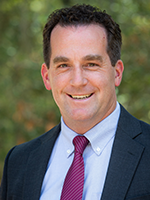 Jesse Covington is professor of political science and director of the Augustinian
Scholars honors program at Westmont College in Santa Barbara, California. He teaches
and writes in the fields of political theory and constitutional law, with particular
interest in the interrelation of religion and government. His publications include
co-editing the book Evangelical Political Theory and Natural Law, along with articles and book chapters on St. Augustine of Hippo, political morality,
democracy, the First Amendment, and Christian liberal arts education. His forthcoming
book, Hopeful Realism: Evangelical Natural Law and Democratic Politics (with Bryan McGraw and Micah Watson) will be released in January 2025. Covington has
taught at Westmont since 2007 and has also held appointments at Wheaton College and
Princeton University.
Jesse Covington is professor of political science and director of the Augustinian
Scholars honors program at Westmont College in Santa Barbara, California. He teaches
and writes in the fields of political theory and constitutional law, with particular
interest in the interrelation of religion and government. His publications include
co-editing the book Evangelical Political Theory and Natural Law, along with articles and book chapters on St. Augustine of Hippo, political morality,
democracy, the First Amendment, and Christian liberal arts education. His forthcoming
book, Hopeful Realism: Evangelical Natural Law and Democratic Politics (with Bryan McGraw and Micah Watson) will be released in January 2025. Covington has
taught at Westmont since 2007 and has also held appointments at Wheaton College and
Princeton University.
Jesús Fernández-Villaverde
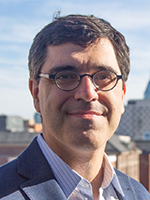 Jesús Fernández-Villaverde is the Howard Marks Presidential Professor of Economics
at the University of Pennsylvania, where he serves as director of the Penn Initiative
for the Study of Markets and co-director of the Business, Economic, and Financial
History Project. He is also a visiting professor at Cambridge University a fellow
at Collegium Institute, a non-resident fellow at the Civitas Institute at the University
of Texas Austin, and a member of the National Bureau of Economic Research and the
Center for Economic Policy Research. He is also a fellow of the Econometric Society.
Jesús Fernández-Villaverde is the Howard Marks Presidential Professor of Economics
at the University of Pennsylvania, where he serves as director of the Penn Initiative
for the Study of Markets and co-director of the Business, Economic, and Financial
History Project. He is also a visiting professor at Cambridge University a fellow
at Collegium Institute, a non-resident fellow at the Civitas Institute at the University
of Texas Austin, and a member of the National Bureau of Economic Research and the
Center for Economic Policy Research. He is also a fellow of the Econometric Society.
He is editor of the International Economic Review. In the past, he has served on the editorial board of several other learned journals,
and he currently serves as an officer in several academic societies.
He has published over 50 peer-reviewed papers, including American Economic Review, Econometrica, Quarterly Journal of Economics, and Review of Economic Studies, and edited and co-authored several books.
His research focuses on macroeconomics, econometrics, and economic history. Among
other topics, he is interested in the role of monetary and fiscal policy, the sources
of economic growth, the importance of the rule of law, and the foundations of market
economies.
John J. Goyette
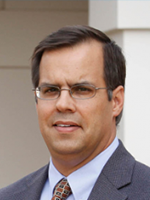 John J. Goyette is vice president for advancement at Thomas Aquinas College which
offers a four-year liberal arts program focusing on the study of the great books of
western civilization at its two campuses in California and New England. Goyette, who
has a PhD in philosophy from the Catholic University of America, has taught for more
than 20 years at the California campus of the College and has also served in various
administrative capacities including Dean of the College. He edited St. Thomas Aquinas and the Natural Law Tradition (CUA Press, 2004) and has published articles on natural law and the political common
good in the work of St. Thomas Aquinas. He has also written and lectured on the natural
philosophy of Aristotle and Aquinas, the Trinitarian theology of Aquinas, and on John
Henry Newman’s Idea of a University.
John J. Goyette is vice president for advancement at Thomas Aquinas College which
offers a four-year liberal arts program focusing on the study of the great books of
western civilization at its two campuses in California and New England. Goyette, who
has a PhD in philosophy from the Catholic University of America, has taught for more
than 20 years at the California campus of the College and has also served in various
administrative capacities including Dean of the College. He edited St. Thomas Aquinas and the Natural Law Tradition (CUA Press, 2004) and has published articles on natural law and the political common
good in the work of St. Thomas Aquinas. He has also written and lectured on the natural
philosophy of Aristotle and Aquinas, the Trinitarian theology of Aquinas, and on John
Henry Newman’s Idea of a University.
Christina Hinton
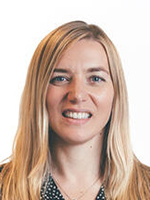 Dr. Christina Hinton leads the Human Flourishing Program’s work in education. At Harvard,
she leads research on character skills, loving relationships, and flourishing among
children, adolescents, educators and parents internationally. In addition, she leads
the Evidence-Based Parenting for Flourishing Families initiative. Dr. Hinton is also
the founder and CEO of Research Schools International (RSI), which has carried out
over 50 research and professional development projects to promote character skills
and flourishing in schools across 70 countries. She lectures internationally and has
delivered keynotes in over 35 countries. Prior to her current roles, Dr. Hinton was
a faculty member at Harvard Graduate School of Education, lecturing on neuroscience
and education and social-emotional learning. In addition, she worked in multilateral
diplomacy and international policymaking at the OECD’s Center for Educational Research
and Innovation and UNICEF’s Early Childhood Development unit. She was also a research
fellow at Sesame Workshop. Dr. Hinton completed her doctorate and master’s at Harvard
in education, neuroscience, and child development, and her bachelors at Swarthmore
in neuroscience and education.
Dr. Christina Hinton leads the Human Flourishing Program’s work in education. At Harvard,
she leads research on character skills, loving relationships, and flourishing among
children, adolescents, educators and parents internationally. In addition, she leads
the Evidence-Based Parenting for Flourishing Families initiative. Dr. Hinton is also
the founder and CEO of Research Schools International (RSI), which has carried out
over 50 research and professional development projects to promote character skills
and flourishing in schools across 70 countries. She lectures internationally and has
delivered keynotes in over 35 countries. Prior to her current roles, Dr. Hinton was
a faculty member at Harvard Graduate School of Education, lecturing on neuroscience
and education and social-emotional learning. In addition, she worked in multilateral
diplomacy and international policymaking at the OECD’s Center for Educational Research
and Innovation and UNICEF’s Early Childhood Development unit. She was also a research
fellow at Sesame Workshop. Dr. Hinton completed her doctorate and master’s at Harvard
in education, neuroscience, and child development, and her bachelors at Swarthmore
in neuroscience and education.
William Jeynes
 William Jeynes is a senior fellow at Princeton’s Witherspoon Institute and a professor
of education at California State University in Long Beach, California. He graduated
first in his class from Harvard University and also graduated from the University
of Chicago, where he received the Rosenberger Award for most outstanding student.
Jeynes has spoken regularly and written for the White House, various government departments,
and for three US presidential administrations, as well as for former members of a
fourth administration. He has also served as an advisor for various other politicians,
including presidential candidates. He has been an advisor/consultant for the EU, the
UN, and several G20 foreign governments. His 4 point plan presented to the Acting
President of South Korea passed the Korean Parliament and became the core of the nation’s
1998 economic stimulus legislation. This 4 point plan helped South Korea emerge from
the greatest economic crisis since World War II faster than any other Asian nation
(22% over two years). He has 185 publications to his credit, including 20 books. He
received the “Distinguished Scholar Award” from the California Senate and the California
State Assembly. He received the “Distinguished Achievement Award” from an arm of the
American Educational Research Association.
William Jeynes is a senior fellow at Princeton’s Witherspoon Institute and a professor
of education at California State University in Long Beach, California. He graduated
first in his class from Harvard University and also graduated from the University
of Chicago, where he received the Rosenberger Award for most outstanding student.
Jeynes has spoken regularly and written for the White House, various government departments,
and for three US presidential administrations, as well as for former members of a
fourth administration. He has also served as an advisor for various other politicians,
including presidential candidates. He has been an advisor/consultant for the EU, the
UN, and several G20 foreign governments. His 4 point plan presented to the Acting
President of South Korea passed the Korean Parliament and became the core of the nation’s
1998 economic stimulus legislation. This 4 point plan helped South Korea emerge from
the greatest economic crisis since World War II faster than any other Asian nation
(22% over two years). He has 185 publications to his credit, including 20 books. He
received the “Distinguished Scholar Award” from the California Senate and the California
State Assembly. He received the “Distinguished Achievement Award” from an arm of the
American Educational Research Association.
His articles have appeared in journals by Columbia University, Harvard University,
the University of Chicago, Cambridge University, Notre Dame University, the London
School of Economics, and other prestigious academic journals. He has spoken for the
White House, the US Department of Justice, the U.S. Department of Education, the U.S.
Department of Health & Human Services, the National Press Club, UN delegates, members
of Congress, Vatican City, the Acting President of South Korea, Harvard University,
Cambridge University, Oxford University, Columbia University, Cornell University,
the University of Chicago, Peking University, Imperial College, and many other well-known
universities.
Jeynes has been interviewed or quoted by many of the world’s leading newspapers and
media outlets (e.g. the Wall Street Journal, the New York Times, the Washington Post, the Los Angeles Times, Aljazeera, the London Times, Newsweek Japan, the Associated Press, CBS, NBC, ABC, CNN, FOX, WGN, Time Warner
Cable, Spectrum TV, NPR, US News & World Report, USA Today, The Atlantic, the Japan Times, the Korean Times, the Teheran Times, etc.). His work has been cited
and quoted numerous times by the US Congress, the US Supreme Court, the British Parliament,
the EU, and many State Supreme Courts across the United States. Jeynes wrote the #1
and #2 all-time most cited articles in the over half century history of the journal
Urban Education. He also wrote the #1 all-time most cited article in the 50+ year
history of the journal Education & Urban Society. He periodically writes columns in
the Orange County Register, the United States' 14th largest newspaper. His articles have been republished and
highlighted in Yahoo News, Real Clear Politics, and in countless other publications.
Dr. Jeynes also gained admission in Who's Who in the World every year of its publication
since 2007.
J.A.T. Smith
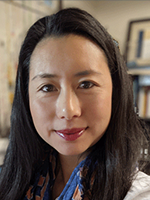 J. A. T. Smith (PhD, UCLA) is associate provost, associate professor of english, and
associate director of the Center for Faith and Learning
J. A. T. Smith (PhD, UCLA) is associate provost, associate professor of english, and
associate director of the Center for Faith and Learning
Smith works on the intersection of language and learning in late medieval England
with an emphasis on the theological writings of the reformist educator, Bishop Reginald
Pecock. She most recently published The Book of Faith: A Modern English Translation (UCLA Center for Medieval and Renaissance Studies, 2020). She is currently working
on a manuscript entitled, The Book of Reginald Pecock, which seeks to reconstruct
Pecock's corpus (even those texts that were burnt in the aftermath of his conviction
of heresy).
When not working on medieval manuscripts, Professor Smith also researches in the areas
of digital pedagogy and rhetoric and is developing a Christian pedagogical app called
The Vineyard. Since 2021, she has served as the Media Officer for the Medieval Association
of the Pacific. She is also the founding convener for the Pepperdine Dialogue Dinners,
a program intended to foster intellectual friendship among faculty through close reading
and robust conversations.
Byron Johnson
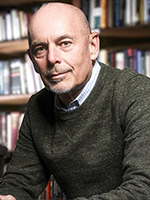 Byron Johnson is the founding director of the Baylor Institute for Studies of Religion
and a faculty affiliate of the Human Flourishing Program at Harvard University. He
is a faculty scholar in the Center for Spirituality, Theology, and Health at Duke
University; senior fellow with the Witherspoon Institute (Princeton, NJ); senior fellow
at the Sagamore Institute (Indianapolis, IN); and a senior advisor at the Religious
Freedom Institute (Washington, DC).
Byron Johnson is the founding director of the Baylor Institute for Studies of Religion
and a faculty affiliate of the Human Flourishing Program at Harvard University. He
is a faculty scholar in the Center for Spirituality, Theology, and Health at Duke
University; senior fellow with the Witherspoon Institute (Princeton, NJ); senior fellow
at the Sagamore Institute (Indianapolis, IN); and a senior advisor at the Religious
Freedom Institute (Washington, DC).
Johnson is a former member of the Coordinating Council for Juvenile Justice and Delinquency
Prevention (Presidential Appointment). He has been the principal investigator on grants
from private foundations as well as the Department of Justice, Department of Labor,
Department of Defense, National Institutes of Health, and the United States Institute
for Peace, totaling more than $80 million. He is the author of more than 200 journal
articles, monographs, and books. He is recognized as a leading authority on the scientific
study of religion, the efficacy of faith-based organizations, and criminal justice.
Recent publications have examined the impact of faith-based programs on offender treatment,
drug addiction, recidivism reduction and prisoner reentry. These topics are the focus
of his book More God, Less Crime: Why Faith Matters and How It Could (2011).
Johnson directs the Program on Prosocial Behavior, which examines the ways in which
religion impacts key behaviors like volunteerism, generosity, and purpose. These topics
are covered in four recent books, The Angola Prison Seminary (2016), which evaluates the influence of a Bible College and inmate-led congregations
on prisoners serving life sentences; The Quest for Purpose: The Collegiate Search for a Meaningful Life (2017), which examines the link between religion and finding purpose and meaning,
and the subsequent link to academic integrity; The Restorative Prison: Essays on Inmate Peer Ministry and Prosocial Corrections (2021), which looks at the empirical evidence in support of the link between religion
and the emerging subfield of positive criminology; and Objective Religion: Competition, Tension, Perseverance (2021), which examines the factors related to the resilience of religion.
Micah Watson
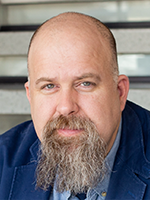 Micah Watson is the Paul Henry Chair for Christianity and Politics at Calvin University.
He is the co-author of C.S. Lewis on Politics and the Natural Law (Cambridge), and Hopeful Realism: Evangelical Natural Law and Democratic Politics (IVP Academic). He is a native of the great golden state of California, but is happy
to call Grand Rapids, Michigan home along with his wife Julie and their five children.
Micah Watson is the Paul Henry Chair for Christianity and Politics at Calvin University.
He is the co-author of C.S. Lewis on Politics and the Natural Law (Cambridge), and Hopeful Realism: Evangelical Natural Law and Democratic Politics (IVP Academic). He is a native of the great golden state of California, but is happy
to call Grand Rapids, Michigan home along with his wife Julie and their five children.
Andrew M. Yuengert
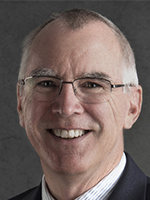 Andrew M. Yuengert is a professor of economics and the Blanche Seaver Chair of Social
Science at Pepperdine University. His research crosses the boundaries between economics,
moral philosophy, and Catholic theology. His latest book is Catholic Social Teaching in Practice: Exploring Practical Wisdom and the Virtues Tradition
(Cambridge, 2023). Previous books include The Boundaries of Technique (2004) and Approximating Prudence (2012). He has been a fellow at the James Madison Program at Princeton University,
and a professor at the Catholic University of America. He current co-directs a monthly
international online seminar on Economics and Catholic Social Thought for the Catholic
Research Economist Discussion Organization (CREDO) and the Lumen Christi Institute.
He holds a PhD in Economics from Yale University.
Andrew M. Yuengert is a professor of economics and the Blanche Seaver Chair of Social
Science at Pepperdine University. His research crosses the boundaries between economics,
moral philosophy, and Catholic theology. His latest book is Catholic Social Teaching in Practice: Exploring Practical Wisdom and the Virtues Tradition
(Cambridge, 2023). Previous books include The Boundaries of Technique (2004) and Approximating Prudence (2012). He has been a fellow at the James Madison Program at Princeton University,
and a professor at the Catholic University of America. He current co-directs a monthly
international online seminar on Economics and Catholic Social Thought for the Catholic
Research Economist Discussion Organization (CREDO) and the Lumen Christi Institute.
He holds a PhD in Economics from Yale University.
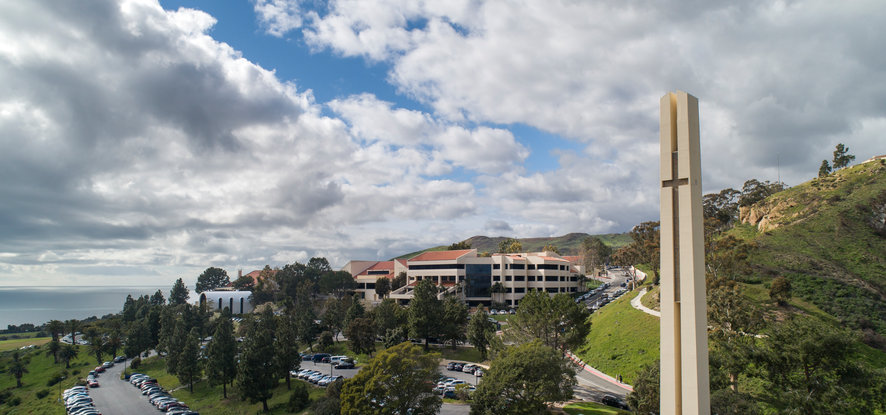
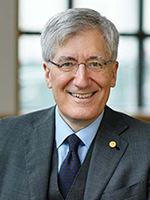 The most distinguished of the School of Public Policy's visiting professorships is
the Ronald Reagan Professor of Public Policy, launched in the program's first years
and approved by Nancy Reagan. As the school's first-ever visiting professorship, and
the only professorship in the president's name at any policy program in the United
States, the position was initially endowed and facilitated by University supporter
Flora L. Thornton.
The most distinguished of the School of Public Policy's visiting professorships is
the Ronald Reagan Professor of Public Policy, launched in the program's first years
and approved by Nancy Reagan. As the school's first-ever visiting professorship, and
the only professorship in the president's name at any policy program in the United
States, the position was initially endowed and facilitated by University supporter
Flora L. Thornton.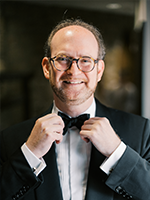 Joshua T. Katz is a senior fellow at the American Enterprise Institute, where he focuses
on higher education, language and culture, the classical tradition, and the humanities
in the broadest sense. Before joining AEI, he was the Cotsen Professor in the Humanities
and professor of Classics at Princeton University. A graduate of Yale, Oxford, and
Harvard, Katz is widely published in the languages, literatures, and cultures of the
ancient, medieval, and modern world. In recent years, he has also been a regular contributor
to such publications as City Journal, First Things, Law & Liberty, The New Criterion, and Public Discourse. While he has received many national and international awards for his scholarship
and his teaching, he is perhaps proudest of being named a Hero of Intellectual Freedom
by the American Council of Trustees and Alumni in 2020 and winning the Jeane Kirkpatrick
Prize for Academic Freedom in 2023.
Joshua T. Katz is a senior fellow at the American Enterprise Institute, where he focuses
on higher education, language and culture, the classical tradition, and the humanities
in the broadest sense. Before joining AEI, he was the Cotsen Professor in the Humanities
and professor of Classics at Princeton University. A graduate of Yale, Oxford, and
Harvard, Katz is widely published in the languages, literatures, and cultures of the
ancient, medieval, and modern world. In recent years, he has also been a regular contributor
to such publications as City Journal, First Things, Law & Liberty, The New Criterion, and Public Discourse. While he has received many national and international awards for his scholarship
and his teaching, he is perhaps proudest of being named a Hero of Intellectual Freedom
by the American Council of Trustees and Alumni in 2020 and winning the Jeane Kirkpatrick
Prize for Academic Freedom in 2023. Daniel E. Burns is associate professor of politics at the University of Dallas, where
he has taught since 2012, and where he served in 2020-21 as interim associate dean
of the college of liberal arts. He is spending this academic year as a visiting fellow
at the Civitas Institute of the University of Texas at Austin. He has previously held
a visiting fellowship at the Catholic University of America and remains a fellow of
its Institute for Human Ecology. He received his doctorate in political science from
Boston College and his BA in political science from Williams College.
Daniel E. Burns is associate professor of politics at the University of Dallas, where
he has taught since 2012, and where he served in 2020-21 as interim associate dean
of the college of liberal arts. He is spending this academic year as a visiting fellow
at the Civitas Institute of the University of Texas at Austin. He has previously held
a visiting fellowship at the Catholic University of America and remains a fellow of
its Institute for Human Ecology. He received his doctorate in political science from
Boston College and his BA in political science from Williams College.  Paul J. Contino is Distinguished Professor in Great Books at Seaver College, Pepperdine
University, where he has been twice granted the Howard A. White Award for Teaching
Excellence. In 2001 he co-edited and introduced Bakhtin and Religion: A Feeling for Faith (Northwestern UP). He has published a number of essays on Fyodor Dostoevsky, as
well as essays on Zhuangzi, Dante Alighieri, and Jane Austen as well as a number of
contemporary Catholic authors such as Andre Dubus, Tobias Wolff, and Alice McDermott.
His book Dostoevsky’s Incarnational Realism: Finding Christ among the Karamazovs (Cascade, 2020) has been published in Russian translation (Academic Studies Press
2023), and was named a finalist for both the Lilly Fellows and Christianity and Literature
book awards.
Paul J. Contino is Distinguished Professor in Great Books at Seaver College, Pepperdine
University, where he has been twice granted the Howard A. White Award for Teaching
Excellence. In 2001 he co-edited and introduced Bakhtin and Religion: A Feeling for Faith (Northwestern UP). He has published a number of essays on Fyodor Dostoevsky, as
well as essays on Zhuangzi, Dante Alighieri, and Jane Austen as well as a number of
contemporary Catholic authors such as Andre Dubus, Tobias Wolff, and Alice McDermott.
His book Dostoevsky’s Incarnational Realism: Finding Christ among the Karamazovs (Cascade, 2020) has been published in Russian translation (Academic Studies Press
2023), and was named a finalist for both the Lilly Fellows and Christianity and Literature
book awards. Jesse Covington is professor of political science and director of the Augustinian
Scholars honors program at Westmont College in Santa Barbara, California. He teaches
and writes in the fields of political theory and constitutional law, with particular
interest in the interrelation of religion and government. His publications include
co-editing the book Evangelical Political Theory and Natural Law, along with articles and book chapters on St. Augustine of Hippo, political morality,
democracy, the First Amendment, and Christian liberal arts education. His forthcoming
book, Hopeful Realism: Evangelical Natural Law and Democratic Politics (with Bryan McGraw and Micah Watson) will be released in January 2025. Covington has
taught at Westmont since 2007 and has also held appointments at Wheaton College and
Princeton University.
Jesse Covington is professor of political science and director of the Augustinian
Scholars honors program at Westmont College in Santa Barbara, California. He teaches
and writes in the fields of political theory and constitutional law, with particular
interest in the interrelation of religion and government. His publications include
co-editing the book Evangelical Political Theory and Natural Law, along with articles and book chapters on St. Augustine of Hippo, political morality,
democracy, the First Amendment, and Christian liberal arts education. His forthcoming
book, Hopeful Realism: Evangelical Natural Law and Democratic Politics (with Bryan McGraw and Micah Watson) will be released in January 2025. Covington has
taught at Westmont since 2007 and has also held appointments at Wheaton College and
Princeton University. Jesús Fernández-Villaverde is the Howard Marks Presidential Professor of Economics
at the University of Pennsylvania, where he serves as director of the Penn Initiative
for the Study of Markets and co-director of the Business, Economic, and Financial
History Project. He is also a visiting professor at Cambridge University a fellow
at Collegium Institute, a non-resident fellow at the Civitas Institute at the University
of Texas Austin, and a member of the National Bureau of Economic Research and the
Center for Economic Policy Research. He is also a fellow of the Econometric Society.
Jesús Fernández-Villaverde is the Howard Marks Presidential Professor of Economics
at the University of Pennsylvania, where he serves as director of the Penn Initiative
for the Study of Markets and co-director of the Business, Economic, and Financial
History Project. He is also a visiting professor at Cambridge University a fellow
at Collegium Institute, a non-resident fellow at the Civitas Institute at the University
of Texas Austin, and a member of the National Bureau of Economic Research and the
Center for Economic Policy Research. He is also a fellow of the Econometric Society. John J. Goyette is vice president for advancement at Thomas Aquinas College which
offers a four-year liberal arts program focusing on the study of the great books of
western civilization at its two campuses in California and New England. Goyette, who
has a PhD in philosophy from the Catholic University of America, has taught for more
than 20 years at the California campus of the College and has also served in various
administrative capacities including Dean of the College. He edited St. Thomas Aquinas and the Natural Law Tradition (CUA Press, 2004) and has published articles on natural law and the political common
good in the work of St. Thomas Aquinas. He has also written and lectured on the natural
philosophy of Aristotle and Aquinas, the Trinitarian theology of Aquinas, and on John
Henry Newman’s Idea of a University.
John J. Goyette is vice president for advancement at Thomas Aquinas College which
offers a four-year liberal arts program focusing on the study of the great books of
western civilization at its two campuses in California and New England. Goyette, who
has a PhD in philosophy from the Catholic University of America, has taught for more
than 20 years at the California campus of the College and has also served in various
administrative capacities including Dean of the College. He edited St. Thomas Aquinas and the Natural Law Tradition (CUA Press, 2004) and has published articles on natural law and the political common
good in the work of St. Thomas Aquinas. He has also written and lectured on the natural
philosophy of Aristotle and Aquinas, the Trinitarian theology of Aquinas, and on John
Henry Newman’s Idea of a University. Dr. Christina Hinton leads the Human Flourishing Program’s work in education. At Harvard,
she leads research on character skills, loving relationships, and flourishing among
children, adolescents, educators and parents internationally. In addition, she leads
the Evidence-Based Parenting for Flourishing Families initiative. Dr. Hinton is also
the founder and CEO of Research Schools International (RSI), which has carried out
over 50 research and professional development projects to promote character skills
and flourishing in schools across 70 countries. She lectures internationally and has
delivered keynotes in over 35 countries. Prior to her current roles, Dr. Hinton was
a faculty member at Harvard Graduate School of Education, lecturing on neuroscience
and education and social-emotional learning. In addition, she worked in multilateral
diplomacy and international policymaking at the OECD’s Center for Educational Research
and Innovation and UNICEF’s Early Childhood Development unit. She was also a research
fellow at Sesame Workshop. Dr. Hinton completed her doctorate and master’s at Harvard
in education, neuroscience, and child development, and her bachelors at Swarthmore
in neuroscience and education.
Dr. Christina Hinton leads the Human Flourishing Program’s work in education. At Harvard,
she leads research on character skills, loving relationships, and flourishing among
children, adolescents, educators and parents internationally. In addition, she leads
the Evidence-Based Parenting for Flourishing Families initiative. Dr. Hinton is also
the founder and CEO of Research Schools International (RSI), which has carried out
over 50 research and professional development projects to promote character skills
and flourishing in schools across 70 countries. She lectures internationally and has
delivered keynotes in over 35 countries. Prior to her current roles, Dr. Hinton was
a faculty member at Harvard Graduate School of Education, lecturing on neuroscience
and education and social-emotional learning. In addition, she worked in multilateral
diplomacy and international policymaking at the OECD’s Center for Educational Research
and Innovation and UNICEF’s Early Childhood Development unit. She was also a research
fellow at Sesame Workshop. Dr. Hinton completed her doctorate and master’s at Harvard
in education, neuroscience, and child development, and her bachelors at Swarthmore
in neuroscience and education. William Jeynes is a senior fellow at Princeton’s Witherspoon Institute and a professor
of education at California State University in Long Beach, California. He graduated
first in his class from Harvard University and also graduated from the University
of Chicago, where he received the Rosenberger Award for most outstanding student.
Jeynes has spoken regularly and written for the White House, various government departments,
and for three US presidential administrations, as well as for former members of a
fourth administration. He has also served as an advisor for various other politicians,
including presidential candidates. He has been an advisor/consultant for the EU, the
UN, and several G20 foreign governments. His 4 point plan presented to the Acting
President of South Korea passed the Korean Parliament and became the core of the nation’s
1998 economic stimulus legislation. This 4 point plan helped South Korea emerge from
the greatest economic crisis since World War II faster than any other Asian nation
(22% over two years). He has 185 publications to his credit, including 20 books. He
received the “Distinguished Scholar Award” from the California Senate and the California
State Assembly. He received the “Distinguished Achievement Award” from an arm of the
American Educational Research Association.
William Jeynes is a senior fellow at Princeton’s Witherspoon Institute and a professor
of education at California State University in Long Beach, California. He graduated
first in his class from Harvard University and also graduated from the University
of Chicago, where he received the Rosenberger Award for most outstanding student.
Jeynes has spoken regularly and written for the White House, various government departments,
and for three US presidential administrations, as well as for former members of a
fourth administration. He has also served as an advisor for various other politicians,
including presidential candidates. He has been an advisor/consultant for the EU, the
UN, and several G20 foreign governments. His 4 point plan presented to the Acting
President of South Korea passed the Korean Parliament and became the core of the nation’s
1998 economic stimulus legislation. This 4 point plan helped South Korea emerge from
the greatest economic crisis since World War II faster than any other Asian nation
(22% over two years). He has 185 publications to his credit, including 20 books. He
received the “Distinguished Scholar Award” from the California Senate and the California
State Assembly. He received the “Distinguished Achievement Award” from an arm of the
American Educational Research Association. J. A. T. Smith (PhD, UCLA) is associate provost, associate professor of english, and
associate director of the Center for Faith and Learning
J. A. T. Smith (PhD, UCLA) is associate provost, associate professor of english, and
associate director of the Center for Faith and Learning Byron Johnson is the founding director of the Baylor Institute for Studies of Religion
and a faculty affiliate of the Human Flourishing Program at Harvard University. He
is a faculty scholar in the Center for Spirituality, Theology, and Health at Duke
University; senior fellow with the Witherspoon Institute (Princeton, NJ); senior fellow
at the Sagamore Institute (Indianapolis, IN); and a senior advisor at the Religious
Freedom Institute (Washington, DC).
Byron Johnson is the founding director of the Baylor Institute for Studies of Religion
and a faculty affiliate of the Human Flourishing Program at Harvard University. He
is a faculty scholar in the Center for Spirituality, Theology, and Health at Duke
University; senior fellow with the Witherspoon Institute (Princeton, NJ); senior fellow
at the Sagamore Institute (Indianapolis, IN); and a senior advisor at the Religious
Freedom Institute (Washington, DC).  Micah Watson is the Paul Henry Chair for Christianity and Politics at Calvin University.
He is the co-author of C.S. Lewis on Politics and the Natural Law (Cambridge), and Hopeful Realism: Evangelical Natural Law and Democratic Politics (IVP Academic). He is a native of the great golden state of California, but is happy
to call Grand Rapids, Michigan home along with his wife Julie and their five children.
Micah Watson is the Paul Henry Chair for Christianity and Politics at Calvin University.
He is the co-author of C.S. Lewis on Politics and the Natural Law (Cambridge), and Hopeful Realism: Evangelical Natural Law and Democratic Politics (IVP Academic). He is a native of the great golden state of California, but is happy
to call Grand Rapids, Michigan home along with his wife Julie and their five children. Andrew M. Yuengert is a professor of economics and the Blanche Seaver Chair of Social
Science at Pepperdine University. His research crosses the boundaries between economics,
moral philosophy, and Catholic theology. His latest book is Catholic Social Teaching in Practice: Exploring Practical Wisdom and the Virtues Tradition
(Cambridge, 2023). Previous books include The Boundaries of Technique (2004) and Approximating Prudence (2012). He has been a fellow at the James Madison Program at Princeton University,
and a professor at the Catholic University of America. He current co-directs a monthly
international online seminar on Economics and Catholic Social Thought for the Catholic
Research Economist Discussion Organization (CREDO) and the Lumen Christi Institute.
He holds a PhD in Economics from Yale University.
Andrew M. Yuengert is a professor of economics and the Blanche Seaver Chair of Social
Science at Pepperdine University. His research crosses the boundaries between economics,
moral philosophy, and Catholic theology. His latest book is Catholic Social Teaching in Practice: Exploring Practical Wisdom and the Virtues Tradition
(Cambridge, 2023). Previous books include The Boundaries of Technique (2004) and Approximating Prudence (2012). He has been a fellow at the James Madison Program at Princeton University,
and a professor at the Catholic University of America. He current co-directs a monthly
international online seminar on Economics and Catholic Social Thought for the Catholic
Research Economist Discussion Organization (CREDO) and the Lumen Christi Institute.
He holds a PhD in Economics from Yale University.